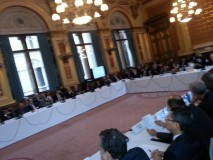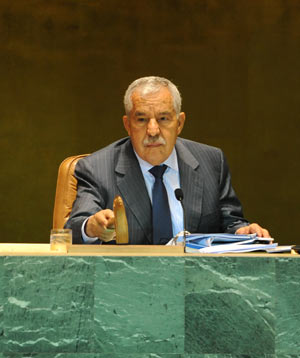By Libya Herald reporter.
London, 19 October 2015:
At the UK and UNSMIL co-chaired . . .[restrict]meeting of senior officials from 40 countries and international organisations and Libyan experts held at the Foreign and Commonwealth Office in London today there was a robust debate by various parties on the role and type of assistance to be offered to any future Government of National Accord (GNA).
Whilst the international community insisted on the GNA requesting and ‘’taking ownership’’ of the type of assistance it needed, critics (mainly Libyan) pointed out that a weak GNA would more likely be unclear as to what type of assistance it really needed.
It was agreed that the expectations of the Libyan public with regards to the delivery capacity of a GNA would need to be managed. Priorities also needed to be assessed. Who was to decide the GNA’s priorities attracted debate with a fear that a new and weak GNA could easily be overburdened by an overambitious list of priorities.
It was recalled that a GNA would probably be in power for only one to two years and that projects needed to fit that timeframe. Others felt that short-term projects and assistance needed to fit to in or sow seeds for Libya’s long-term vision. Critics, however, said that this interim GNA had no authority to initiate any medium or short-term ideas.
The more cautious attendees felt that the GNA’s best priorities were to halt Libya’s slide into the unknown and prevent the nation from breaking up.
There was also discussion as to whether to limit assistance to the GNA or if some assistance could bypass the overburdened GNA and go directly to municipalities. This view was based on the belief that local authorities were best placed to assess local needs and to best distribute local assistance in view of a weak central GNA.
It was felt that Libyans needed to see early and quick successes so that the GNA could gain widespread public support and maintain and gain legitimacy. A non performing GNA would quickly lose support and legitimacy.
There were also calls for the GNA to win use media and information wisely, given the current hostile social media scene. A negative media environment for the GNA was felt would undermine its legitimacy.
Security and militias were also discussed. It was felt that most activities of the GNA would only be possible in the Tripoli if the city were made safe and secure.
The international community were notable for their reticence on any details of planned security measures for any future GNA. [/restrict]










